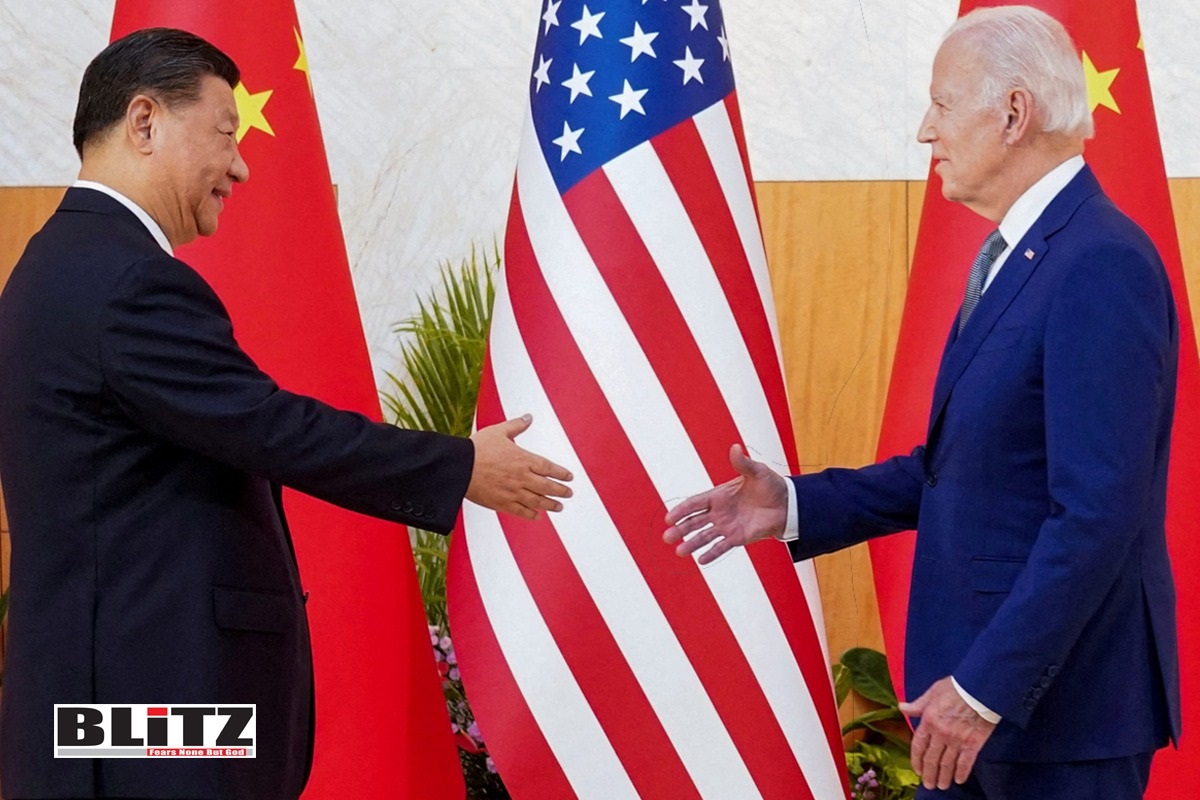In Washington, a palpable fear of China pervades
- Update Time : Saturday, May 11, 2024

As the winds of political change swirl around the White House, discussions abound regarding the potential ramifications for China-US relations. Yet, amidst this uncertainty, a prevailing sentiment continues to cast a shadow over the United States: a deep-seated apprehension of China. While the impending transition in leadership may introduce new dynamics, it is unlikely to fundamentally reshape the intricate tapestry of Sino-US relations. The foundational pillars underpinning both the Biden and Trump administrations persist, ensuring continuity in the US’s overarching strategy of asserting dominance across global spheres, encompassing realms from finance to military prowess.
Within the hallowed halls of Washington, a palpable fear of China pervades, rooted in the conviction that China harbors ambitions for global dominance akin to those historically pursued by the US. Analysts embedded across various echelons of US institutions, spanning from the Department of Defense’s Office of Net Assessment to the clandestine corridors of the CIA, FBI, and the Department of State, remain steadfast in their belief that China’s wielding of power will mirror the coercive tendencies historically associated with American hegemony. This prevailing assumption posits that if China were to wield the material resources currently monopolized by the US, it would inevitably seek to assert comparable levels of dominance.
However, amidst the sea of apprehension, a dissenting voice emerges, challenging the prevailing narrative. I argue that China, even if hypothetically endowed with unrivaled material prowess, would chart a distinct course in wielding its power. China’s pursuit of what I term “centrality” should not be conflated with the hegemonic aspirations historically associated with dominant powers. Unlike the US, China’s objectives diverge, offering a potential avenue to navigate the treacherous waters of the so-called “Thucydides trap.” Recognizing the subtle nuances embedded within China’s approach to power is paramount to circumventing the perils of a zero-sum game that threatens to plunge the world into unprecedented chaos.
Indeed, China’s ascent onto the global stage is incontrovertible, underscored by its burgeoning power and burgeoning influence. Yet, this meteoric rise need not herald the twilight of American or Western dominance. Instead of viewing China’s ascendancy through the lens of apprehension, Western nations could choose to perceive it as an opportunity for collaboration and mutual prosperity. The root causes of Western decline lie not in the external machinations of rising powers but in internal fissures, marked by a glaring lack of cohesion and collective will.
Central to this paradigm shift is the recognition of the distinctive trajectory charted by China. Unlike the expansionist aims historically associated with hegemonic powers, China’s pursuit of centrality is motivated by imperatives unique to its socio-political fabric. Driven by a quest to maintain harmony within its sprawling mega-society and to spearhead economic development for the rejuvenation of the Chinese nation, China’s aspirations diverge markedly from those historically pursued by Western powers. Crucially, China does not seek to impose its cultural hegemony upon the world, in stark contrast to the West’s history of cultural imperialism.
Moreover, China does not embody a revolutionary force seeking to upend the existing global order. Instead, its primary focus lies in catalyzing the modernization of its extensive society on its own terms. While achieving this objective undoubtedly exerts a profound influence on the global stage, it does not necessitate a zero-sum competition with Western powers.
Yet, despite the prevailing currents of apprehension, there exists a window of opportunity for the US and the West to recalibrate their perceptions of China. Embracing a more nuanced understanding of China’s re-emergence holds the promise of mitigating tensions and forging new pathways for collaboration. Instead of perceiving China’s resurgence as a threat to their dominance, Western nations can choose to view it as an opportunity to co-create a more inclusive and equitable global order.
Genuine leadership, emanating from China, Europe, and the US, should eschew the temptations of Machiavellian power plays, instead opting to cultivate a global mindset rooted in collaborative value creation. While cynics may dismiss such aspirations as utopian folly, they remain the only viable path towards realizing a future characterized by peace and harmony.
The trajectory of China-US relations in the coming years hinges upon a fundamental recalibration of perspectives. In an era fraught with uncertainty and peril, the imperative for trust in progress has never been more acute. If the US and the West can muster the humility to acknowledge China’s unique approach to power and prioritize collaboration over competition, while China remains tethered to its traditional wisdom, the world may yet embark on an unprecedented journey towards progress, elevating human dignity to hitherto unimagined heights.













Leave a Reply